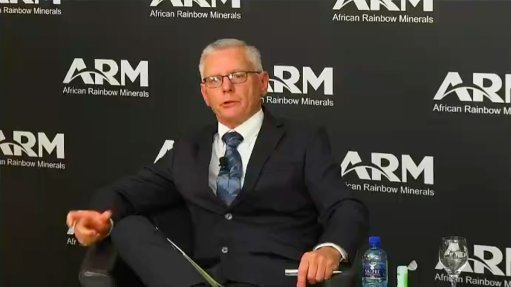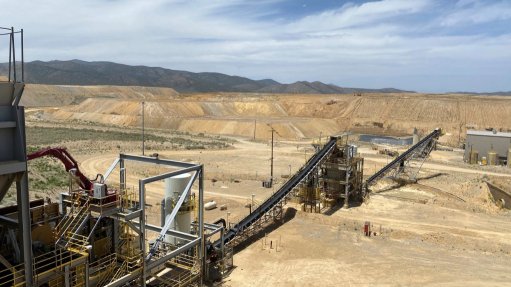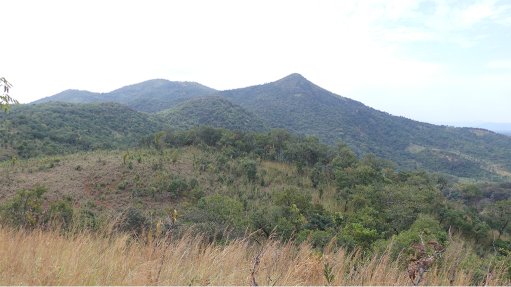Unpacking hydrogen’s massive but urgent opportunity for Africa



ALEXANDRA CLÜVER Africa, and South Africa specifically, however, need to be undaunted by the green hydrogen challenge in order to grab one of the biggest opportunities for the region as the global green economy of the future emerges
ALESSANDRA PARDINI Another very important key to transitioning our industries to hydrogen is the creation of a financeable hydrogen market
Repeating history from centuries ago, coastal resource hubs in Africa could once again become vital, globally strategic ports for the biggest players in the world economy, say international law firm Allen & Overy partners Alexandra Clüver and Alessandra Pardini.
They note, however, that this time, the opportunity is born out of the global energy crisis.
“The world is at an energy crossroads – global fossil fuel supply continues to be further disrupted by the Russia-Ukraine war, driving up the cost of goods worldwide and plunging global supply chains into chaos.
“Meanwhile, more large industries, including global shipping and aviation, are committing to Net Zero. This convergence of events is presenting Africa, and South Africa specifically, with an unmissable opportunity to become a global production hub and refuelling station for green hydrogen and other green fuels,” they comment.
As such, carbon-neutral hydrogen energy, produced using renewable energy, has a key role to play in reducing greenhouse-gas emissions for many industries, including the long-haul transport industries.
To date, the ability of a green-hydrogen-based product to become a major global fuel source has been hampered by cost.
“Africa, and South Africa specifically, however, need to be undaunted by this challenge to grab one of the biggest opportunities for the region as the global green economy of the future emerges,” say Clüver and Pardini.
Unlocking a Hydrogen Market in South Africa
The urgent challenge that South Africa faces is how to launch its hydrogen industry with the right government support and enough private capital and know-how. It needs to take several critical steps quickly to beat challenger markets in the global green hydrogen race.
Clüver and Pardini notes that the country has the “right” resources – including some of the best solar and wind resources in the world – but the fact is that if South Africa does not act fast enough, it could be ‘pipped at the post’ by Chile, Egypt and other coastal countries.
Similar to South Africa, these countries have the space to establish hydrogen ports as well as burgeoning wind, solar and hydropower industries, which are critical for the clean, consistent and cost-effective production of green hydrogen and derived products such as green ammonia and e-ethanol.
Additionally, proximity and strategy around access to key markets and offtake will be critical.
They state that it is encouraging that South Africa has already developed a Hydrogen Roadmap, and that the Presidency plans to play a coordinating role across the government with respect to green hydrogen. “It is also exciting to see that South Africa is already working on its first gigahydrogen project at Boegoebaai at Port Nolloth.
Petroleum and energy company Sasol is leading the feasibility studies in respect of Boegoebaai and has signed a memorandum of agreement with the Northern Cape Development Agency.
Assuming the detailed feasibility study currently under way is successful, even if the project developers do everything ‘right’, it will take a significant period of time to complete the project.
“For one, it will require the construction of substantial infrastructure [such as a] port – including desalination and other shared infrastructure – processing facilities, and a pipeline to create a ‘green corridor’ to major industrial areas.”
Clüver and Pardini note that the ideal local early adopter industries for green hydrogen and derived products are the automotive industry, the agriculture industry for green ammonia fertiliser production, the mining sector for hydrogen-powered mining trucks and the transport industry for fuel-cell-powered trucks and buses.
“We need to enable these industries to adopt hydrogen through supportive legislation and policies, attractive incentives for investors and customers and a much more rapidly liberalised energy sector.
“We need a greater societal commitment to meeting net-zero targets, fossil fuels need to be phased out, and we need enough excess renewables with which to power the production of green hydrogen, in addition to being part of the rebuilding and transition of our ailing power sector.”
They add that the county will not be able to establish a viable and sustainable hydrogen market until the reliable storage and transportation of hydrogen becomes possible.
“Once the right infrastructure has been established and we can get our production volumes up, ships and planes could refuel with green hydrogen products in South Africa.”
Another important aspect of transitioning industries to hydrogen is the creation of a financeable hydrogen market.
“Financiers want assurances that there are reliable contracts in place with reliable offtakers, such as large multinational companies with deep pockets, urgent needs, and clear strategies and timelines for hydrogen adoption.”
Clüver and Pardini suggest that shipping could become one such offtaker for African hydrogen. “Many of the big shipping companies have already announced their net-zero targets for 2030 or 2040.”
They add that South Africa must look at tax benefits, accelerated permit scheduling, Renewable Energy Development Zones (REDz) and Hydrogen Investment Zones.
“Globally, we need to establish a commodity price for hydrogen. Until all this happens, wind, solar and renewables are still easier investments for risk-averse, climate-friendly investors.”
The Private Sector Must Take the Development Lead
For any hydrogen project to succeed, ideally one lead developer from the private sector must take responsibility for all the physical infrastructure, outsourced or not.
The development of ports and other key infrastructure and its interface with the remainder of the value chain will be critical to create a reliable route to market.
In South Africa, it is unrealistic to expect government will have the resources to launch and run all these elements, because internationally, hydrogen hubs cost upwards of $5-billion to establish.
Therefore privately funded and operated industrial ports similar to the Richards Bay Coal Terminal, will become necessary for the launch of a fledgling hydrogen industry.
Financing is also key, but the appetite of the banks to fund hydrogen projects remains to be seen.
“Interesting alliances between investors, financiers and other players are likely to emerge in the near future as we see the hydrogen industry taking off. In Africa, we will see this happening across many different jurisdictions.”
Comments
Press Office
Announcements
What's On
Subscribe to improve your user experience...
Option 1 (equivalent of R125 a month):
Receive a weekly copy of Creamer Media's Engineering News & Mining Weekly magazine
(print copy for those in South Africa and e-magazine for those outside of South Africa)
Receive daily email newsletters
Access to full search results
Access archive of magazine back copies
Access to Projects in Progress
Access to ONE Research Report of your choice in PDF format
Option 2 (equivalent of R375 a month):
All benefits from Option 1
PLUS
Access to Creamer Media's Research Channel Africa for ALL Research Reports, in PDF format, on various industrial and mining sectors
including Electricity; Water; Energy Transition; Hydrogen; Roads, Rail and Ports; Coal; Gold; Platinum; Battery Metals; etc.
Already a subscriber?
Forgotten your password?
Receive weekly copy of Creamer Media's Engineering News & Mining Weekly magazine (print copy for those in South Africa and e-magazine for those outside of South Africa)
➕
Recieve daily email newsletters
➕
Access to full search results
➕
Access archive of magazine back copies
➕
Access to Projects in Progress
➕
Access to ONE Research Report of your choice in PDF format
RESEARCH CHANNEL AFRICA
R4500 (equivalent of R375 a month)
SUBSCRIBEAll benefits from Option 1
➕
Access to Creamer Media's Research Channel Africa for ALL Research Reports on various industrial and mining sectors, in PDF format, including on:
Electricity
➕
Water
➕
Energy Transition
➕
Hydrogen
➕
Roads, Rail and Ports
➕
Coal
➕
Gold
➕
Platinum
➕
Battery Metals
➕
etc.
Receive all benefits from Option 1 or Option 2 delivered to numerous people at your company
➕
Multiple User names and Passwords for simultaneous log-ins
➕
Intranet integration access to all in your organisation




















